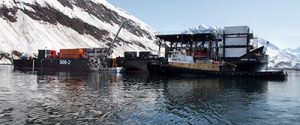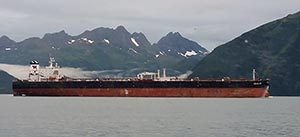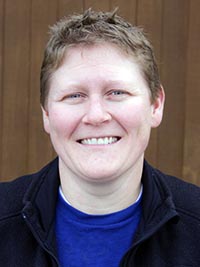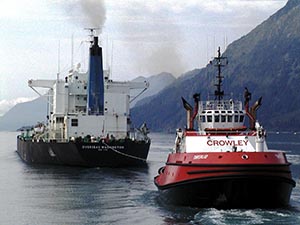Council invited to observe trainings, ship construction, on-water exercises

In June, Alyeska Pipeline officially confirmed that Edison Chouest Offshore will take over from Crowley Maritime as the provider of oil spill prevention and response services for the terminal and tankers in Prince William Sound. The overlap of Crowley and Edison Chouest’s marine assets in Prince William Sound will take place over a three to six week period in the summer of 2018.
The contract, signed in early August, is effective until 2028.
Edison Chouest is planning five new escort tugs, four new general purpose tugs, three new barges, and two line boats. Construction of the general purpose tugs began this summer. Edison Chouest is planning to purchase two barges currently in Prince William Sound and build three new barges.
Edison Chouest owns shipyards in the Gulf of Mexico, and the majority of the testing will be done nearby. Further testing will be done in Puget Sound and later in Prince William Sound once the vessels arrive in the region.
Alyeska has promised further details about the vessels such as escorting performance specifications, firefighting capabilities, and spill response equipment in the near future.
Observing the process
The council is attending meetings along with ADEC, the Coast Guard, and Crowley for updates and information from Alyeska and Edison Chouest. Roy Robertson, the council’s drill monitor, has been attending on behalf of the council.
“They have offered us the opportunity to observe vessel construction, crew trainings, and on-water exercises,” said Robertson. “We are setting aside funds for these trips to the shipyards and training facilities in the Gulf of Mexico.”



